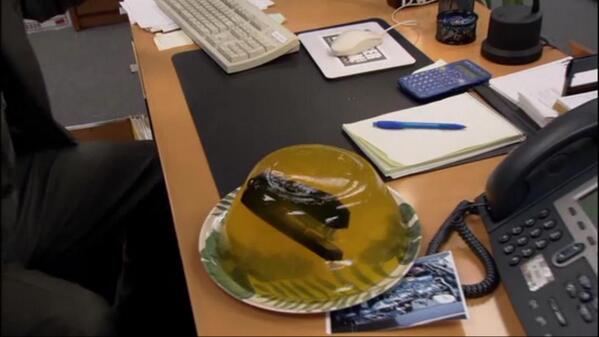A disturbing question every third year medical student must answer is: What do I do when confronted with unprofessional behavior on the wards? Attending physicians harshly criticizing nurses, chiefs residents referring to patients by derogatory nicknames, interns lying to patients to avoid detaining explanations, all woven into the normative fabric of a day on the wards.
Motivated primarily by a desire to impress the residents and attendings that will evaluate them, students often describe a desire to be “on the team” and well liked before anything else. Medical students new to patient care also lack any anchor of experience so may come to perceive unprofessional behavior as simply the way things are done in the real world, despite nagging scruples. Consequently, as clinical clerks many of us find ourselves playing along, supporting or engaging in the unprofessional behavior we see modeled. Some students describe a reactionary impulse to shut down when confronted with improper behavior, effectively denying their natural disapproval and instead simply failing to react at all; a numbing of their conscience that can ultimately rob them of any meaning in clinical work. Other students may feel an unrestrained impulse to decry and blatantly protest the actions of a superior, which may seem righteous, but can disrupt care and risks landing a student “off the team,” labeled as “inexperienced” or “naive,” and closed to future experiences on the rotation. Regardless of the response, during the clinical year we find ourselves occasionally in defiance of both the well-versed ideals of medical practice and our own personal principles of conduct, two critical foundations upon which we build our approach to a challenging clinical career. Compromising either of these foundations early in training forebodes disillusionment, burnout, and possibly destructive practice habits that may lead to patient harm and physician discipline. Do we really have to play along or shut our eyes to improper behavior as third year students?
In a landmark case taught to every first year law student, British Chief Justice Lord Coleridge declared, while considering extraordinary circumstances as a defense of criminal behavior:
“We are often compelled to set up standards we cannot reach ourselves, and to lay down rules which we could not ourselves satisfy. But a man has no right to declare temptation to be an excuse, though he might himself have yielded to it (1).”
We may find during the course of a career in medicine that the ethical standards and ideals of medical practice are impractical, inflexible, and insensitive to the human experience of treating sick patients. That criticism is both true and precisely the point; ideals are set to remain above us as perfect goals to strive for and not as expectations of perfect behavior. Nonetheless, our responsibly as professional students and physicians is to do that striving and to keep those ideals firmly affixed as our model of the profession. We will certainly fall short, slipping and stumbling along as students, residents, and attending physicians, but we truly “have no right to declare temptation [or fatigue, or poor role models, or inexplicable patient attitudes] to be an excuse.” Professional respect and decency to all ancillary staff members, conscientious respect and integrity in all dealings with all patients, both in their presence and behind closed doors, thoughtful reflection and a commitment to professional self-improvement; these ideal virtues in a physician are indeed impossible to perfect and are utterly indispensable to every student trying to reconcile what they believe about medicine and what they occasionally see during their third year.
Despite broad awareness and consensus on these virtues, violations of basic professionalism occur surprisingly often in the trenches of clinical care, especially on the busy acute care services students encounter during their all-important medicine and surgery clerkships. Residents and attending supervisors are indeed exhausted and stressed, patients certainly can be rude and ungrateful, derisive jokes are often funny. Occasional shortcomings are a feature of every professional endeavor, and patient illness does levy inhuman demands on clinicians. These and other truths are often given to excuse unprofessional behavior in patient care, though truly they are nothing more than temptations to yield to base or expedient behaviors – temptations which can be met with preparation, individual will, and principled decision-making.
So what can we do? How can we stay “on the team” during shortfalls but not forfeit the greater game of our own development?
I offer two suggestions. First, suppress but don’t repress negative experiences. Playing along violates your duty to aim for ideals and risks entrenching bad habits, though indulging naturally indignant reactions risks disrupting clinical care and erodes perceptions of your cooperativeness. A remaining option is to observe, acknowledge what you’re witnessing and the reactions you’re experiencing, and hold them just out of reach of response for the moment. Shortly thereafter, within hours or days, access and explore those reactions consciously with the goal of reconciling what you’ve seen with the physician you imagine yourself to become. Just as third year students evaluate each rotation as a specialty in which to potentially build a career, students have the opportunity to evaluate each physician they work under as a model of medical practice to emulate or eschew. If observations are threads of yarn, then a collection of observations is simply a ball of yarn, but a collection of observations woven together thoughtfully can be a durable and useful fabric. Be composed and thoughtful observers on the wards, and use your observations to thoughtfully fashion your identity as a physician. I find writing to be indispensable in this process, though self-dialogue and conversation are more useful to some and lead naturally to my second suggestion.
Find mentors to guide your processing. Accessing mentorship is among the most important pursuits of any career and is utterly critical to medical training. Learning to access mentorship may be the single most important development of the third year, and is invaluable to finding a way through challenges to professionalism during the clerkships. True mentors can be indispensable resources with which to discuss and process the instances of unprofessional behavior you witness on the wards. Mentors are typically faculty members or other physicians in a specialty related to your interests who are not involved in your evaluations and who express interest in your development. Many programs pair students with potential mentors, though students should seek out mentorship from any physician they admire and who welcomes the idea of meeting with them regularly to discuss their growth. Importantly, don’t seek a mentor to show-off to or to impress, as you may attempt with attendings or residents on the wards. Rather, seek a mentor to show-in to; to honestly and vulnerably discuss personal challenges and conflicted sentiments. No one has endured medical training without setbacks and misgivings, and mentors can be invaluable in contextualizing what you experience and in helping to frame your understanding of less-than-perfect behaviors in patient care. And mentorship is a two-way street; as you may find later in your career, serving as a mentor is among the most rewarding experiences of apprenticeship-based learning. Truly, we process the challenges and imperfections of a career in medicine together as mentors and mentees in all varieties of pairing.
Ultimately, you must shape your own professionalism. In addition to great opportunities to learn, the third year of medical school presents great challenges to the ideals of medicine and to individuals’ personal codes of conduct. It is a time of immense growth, though that growth occurs imperfectly so must periodically be rectified. Contemporary psychologists increasingly advocate the power of habits and unconscious patterns of behavior (heuristics) as established in formative periods, such as the third year of medical school (2,3). Straightening out your development and setting healthy practice habits amid unprofessional behavior on the wards with the help of introspection and mentorship is simply crucial to your fulfillment as a student, and ultimately as a practicing physician.
Frankly, if there is something worth saying about character, Ralph Waldo Emerson has probably said it so take your lesson from him:
“It is easy in the world to live after the world’s opinion; it is easy in solitude to live after our own; but the great man is he who in the midst of the crowd keeps with perfect sweetness the independence [and rectitude] of solitude (4).”
As Emerson suggests, true professionalism begins with a personal code of conduct, a set of your principles. Composed adherence to those principles amid external pressures and imperfect models is character, and without question character is the greatest virtue in a physician. Use thoughtful observation and reflection with the guidance of mentors as your path to a fortified professional character. Though this may sound like extraneous work on top of shelf preparation and patient-focused reading, commitments to your character will allow you to navigate those conflicting moments on service, and will ultimately delivery to you the “perfect sweetness” of a rewarding career in medicine.
- Regina v. Dudley and Stephens. 14 Q.B.D. 273 (1884). Lord Coleridge, C.J.
- Kahneman, Daniel. Thinking, Fast and Slow. New York: Farrar, Straus and Giroux, 2011.
- Dweck, Carol S.. Mindset: The New Psychology Of Success. New York: Ballantine Books, 2008.
- Emerson, Ralph Waldo. Self-Reliance. White Plains, New York: Peter Pauper Press, 1967.





